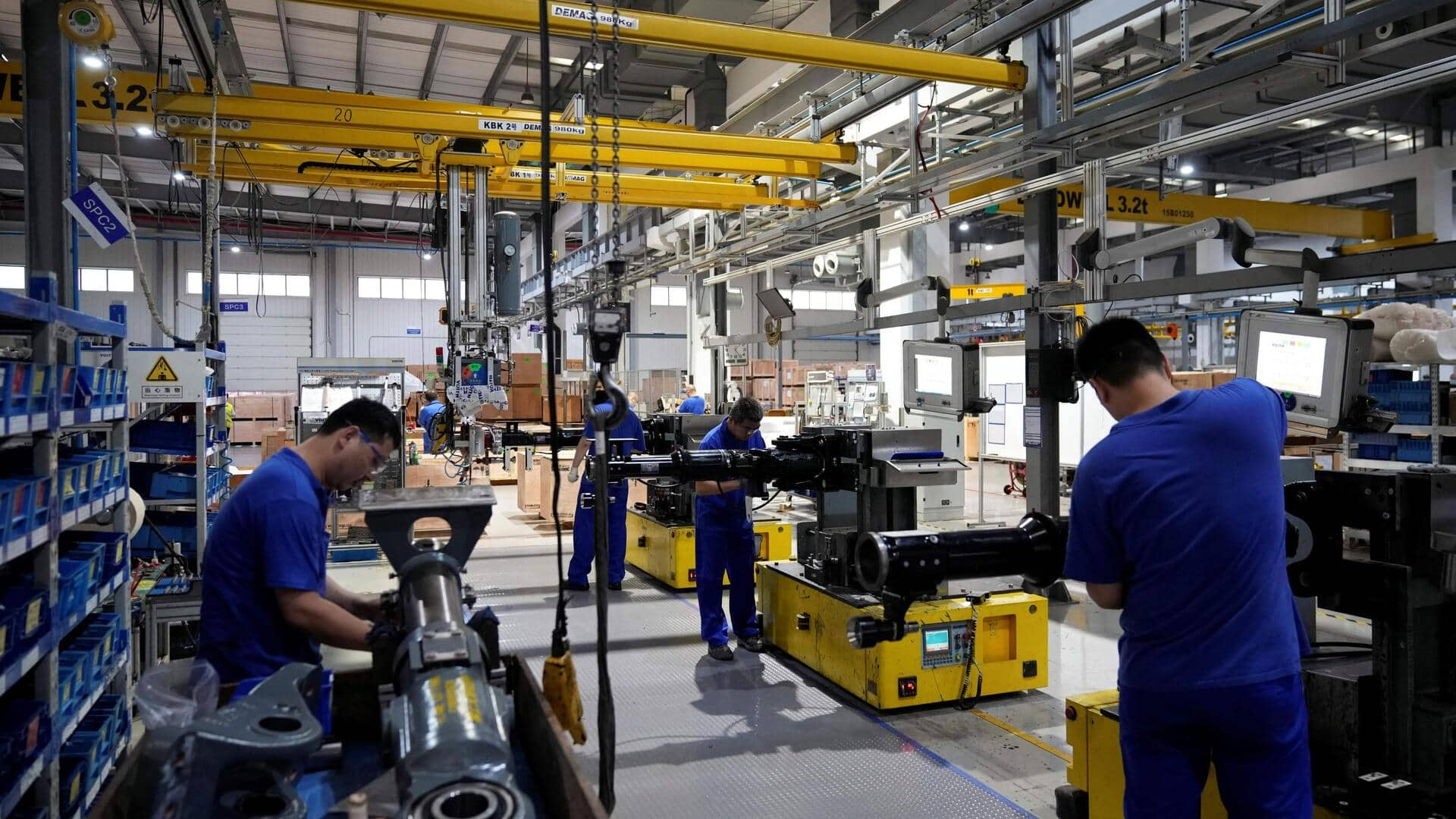
China's manufacturing activity contracts for third consecutive month in December
What's the story
China's manufacturing sector saw a decline for the third month in a row in December, according to a Purchasing Managers' Index (PMI) survey released by the National Bureau of Statistics. The nation's official PMI dropped to 49.0 from 49.4 in November. This decrease raises concerns about China's economic recovery and increases the chances of new stimulus measures in the upcoming year.
Details
Factors affecting China's economic recovery
China's post-pandemic rebound has been slowed down by a series of events including a major property slump, local government debt risks, and weak global demand. In the past few months, the Chinese government has implemented a range of policies to shore up a feeble post-pandemic recovery. Despite these efforts, the world's second-largest economy is still grappling to gain momentum.
Scenario
Central bank's response and government measures
On Thursday, China's central bank revealed plans to increase policy adjustments to support the economy and encourage a price rebound amid growing deflationary pressures. Earlier this month, top Chinese leaders committed to taking more steps to aid the recovery in 2024. On December 22, five of China's largest state banks reduced interest rates on some deposits, marking the third round of such cuts this year.
Insights
Non-manufacturing PMI increased amid decline
In November, China saw its fastest consumer price decline in three years, while factory-gate deflation worsened due to weak domestic demand. The National Bureau of Statistics highlighted that decreased overseas orders and insufficient domestic effective demand are the main challenges. The new orders sub-index contracted for the third month, and the new export orders index contracted for the ninth consecutive month. However, the official non-manufacturing PMI increased to 50.4 from 50.2 in November, signaling a recovery in the services sector.